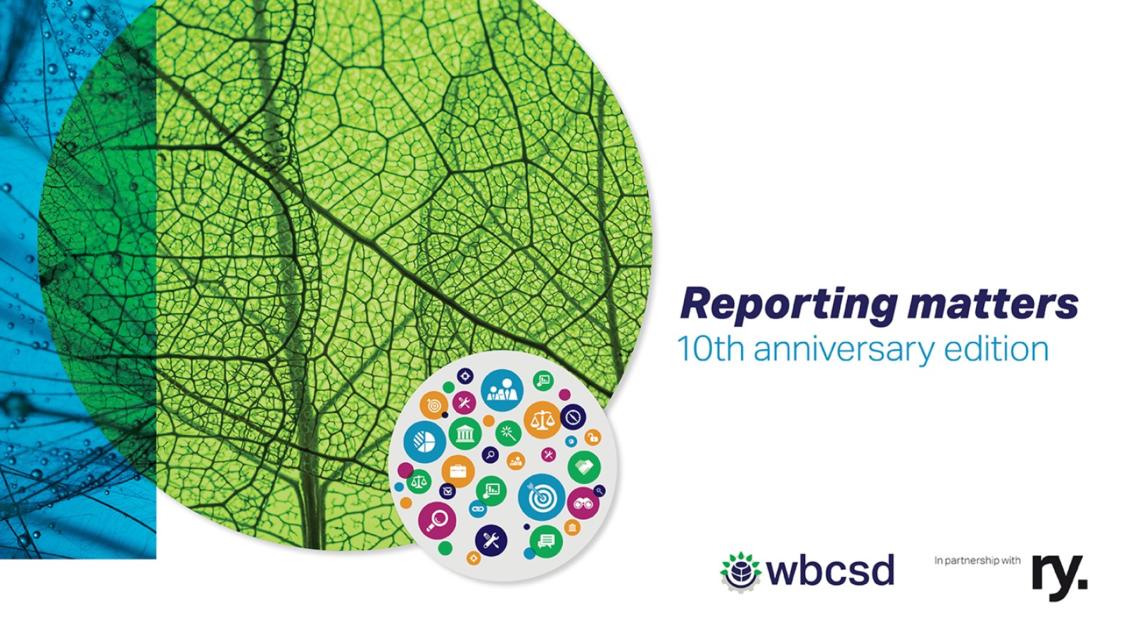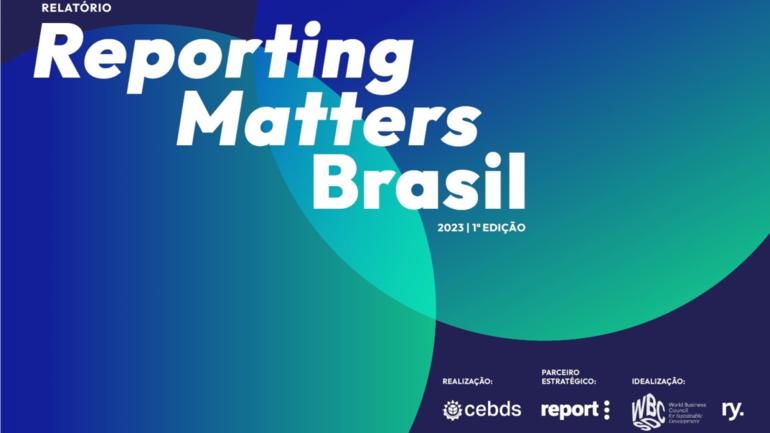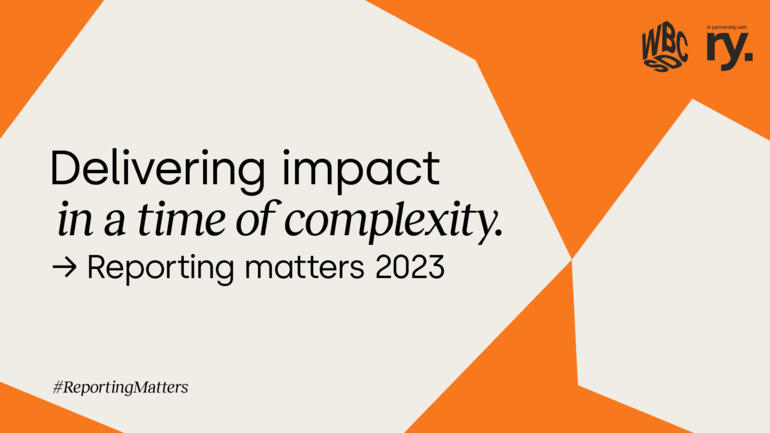Geneva, London 20 October 2022 – We are celebrating 10 years of Reporting matters, WBCSD’s annual review of its member companies’ sustainability and integrated reports in partnership with Radley Yeldar (RY). To mark the occasion, we are publishing the findings of our annual Reporting matters 2022 report, commemorating ten years of corporate sustainability reporting.
For this tenth anniversary edition, Reporting matters 2022 includes a focus on what reporting has achieved over the past decade and how it needs to evolve to continue helping our members to drive improvements in their sustainability reporting. Since 2013:
- We have reviewed 1,623 reports.
- We have held 671 one-to-one feedback calls with member companies.
- We have seen a significant increase in the overall score from 52% in 2013 to 67% in 2022.
- In fact, there has been a 700% increase in the number of companies scoring 70% or over since 2013.
As it has done for the last decade, the 2022 edition of Reporting matters offers insights into the current state of corporate sustainability reporting. Its research spans 154 global companies and shows continued progress. Key findings are outlined below and will also be shared in a webinar on 23 and 24 November 2022. The sessions are available to all, and you can register here.
Reporting is improving
- 93% of member companies in our benchmark have improved their Overall scores since the baseline year of 2019; 34% have improved their Materiality score.
The state of SDG reporting
- 94% of reports reviewed acknowledged the SDGs in some way; 34% prioritize 5-8 Goals to focus on.
The state of integrated reporting
- 35% of reports reviewed combine financial and non-financial information, slightly down from 39% in 2019; 19% are self-declared integrated reports.
The state of GRI reporting
- 76% of reports reviewed reference the Global Reporting Initiative (GRI), down from 87% in 2019; 75% of whom claim to be in accordance with the Core or Comprehensive level.
The emergence of SASB and TCFD
- 45% of reports reviewed reference the SASB standards, up from 10% in 2019; 78% reference the TCFD recommendations.
Online content shoots up
- 98% of members with an offline-first approach produce complementary online content, up from 64% in 2019; 21% of reports reviewed provide a digital-first experience, similar to 23% in 2019.
Peter Bakker, President and CEO of WBCSD, said: “Reporting matters has been supporting companies over the last 10 years, improving the effectiveness of reporting and its ability to drive and explain sustainable business transformation. It is more important than ever that we provide investors with accurate, timely and actionable information about the material environmental and social risks companies face, as well as the positive and negative impacts they are responsible for. Transparency and reporting are essential in helping to drive progress and demonstrate that we are achieving real change, providing a true reflection of a company’s ability to generate long-term value for its owners and the communities and ecosystems that its success relies on.”
Jennifer Black, Sustainability Reporting Director at RY, said: “Sustainability reporting has transformed over the last decade and it’s rewarding to see such positive results from our long partnership with WBCSD. Reporting matters has proved instrumental in supporting businesses to improve the effectiveness of their reporting, respond to the changing demands from external stakeholders and keep up with an ever-evolving regulatory landscape. We’ve witnessed steady progress in the rigor that underpins reporting through more rigorous materiality assessments, the integration of sustainability strategies into business plans and the broadening use of communication channels and platforms – all driven by diversifying audience needs. These changes are making sure reporting remains relevant and fit for purpose for the decade ahead.”
Going forward, the evolution of the materiality landscape, the ongoing digitalization of reporting and the development of a global baseline for sustainability reporting will help meet the needs of global capital markets.
With this backdrop, Reporting matters will continue into the next decade as WBCSD and our member companies work to improve corporate reporting and accelerate the transition to a sustainable world. We would like to thank our members for their continued commitment, dedication and efforts to improve their sustainability disclosures and reporting, and for their engagement with Reporting matters over the years.
Download the full Reporting matters 2022 report here to read more about key findings, dive deeper into detailed analysis and good practice examples and much more. Keep a special eye out for the introduction chapters celebrating 10 years of partnership and laying out what Reporting matters needs to offer going forward.








